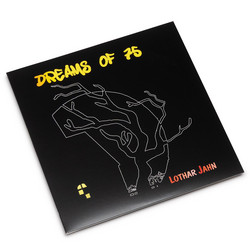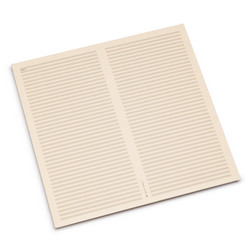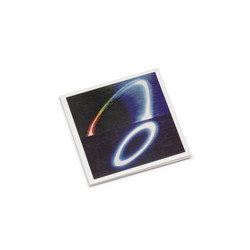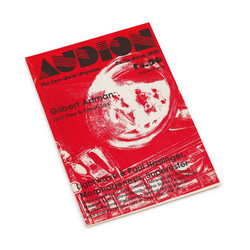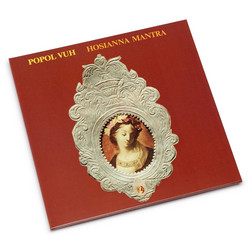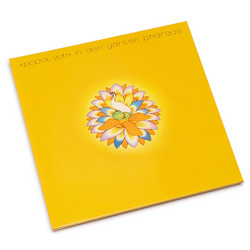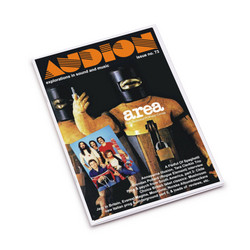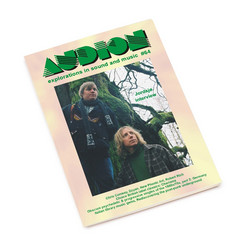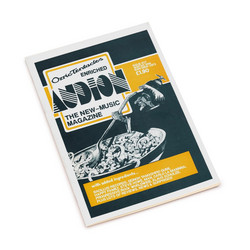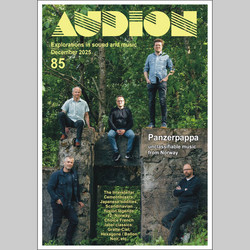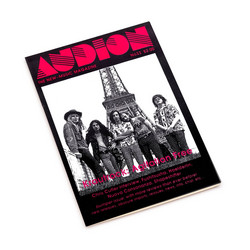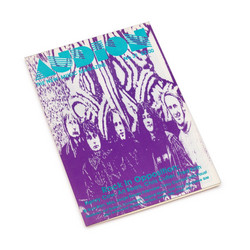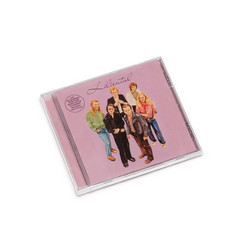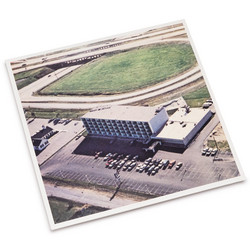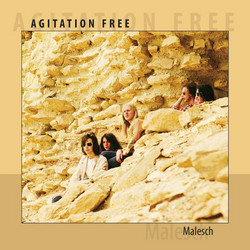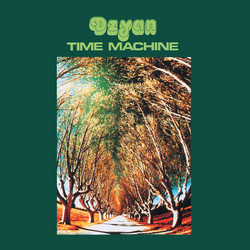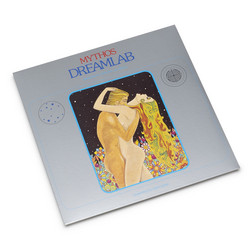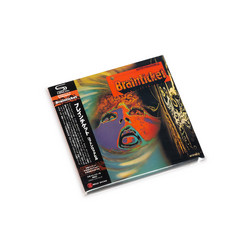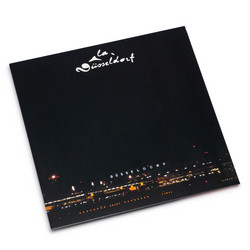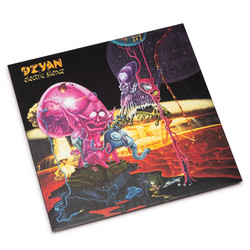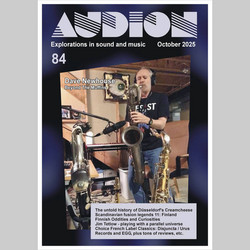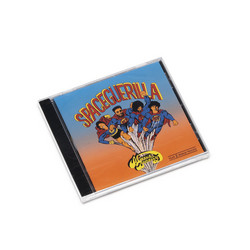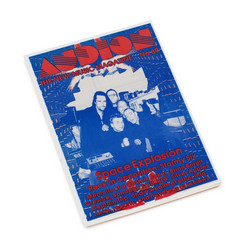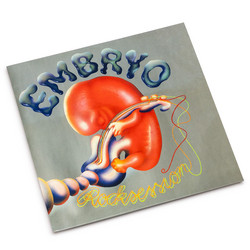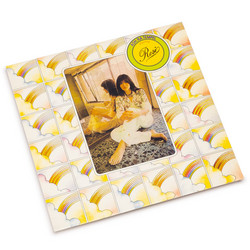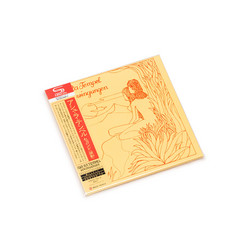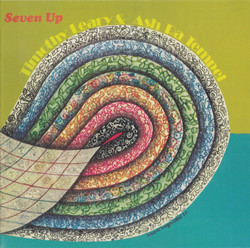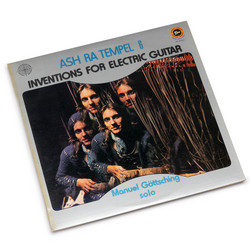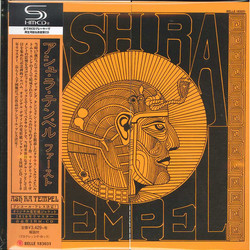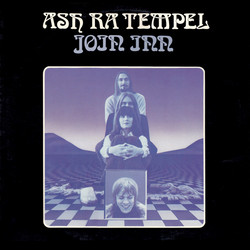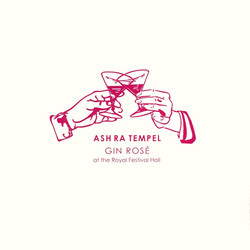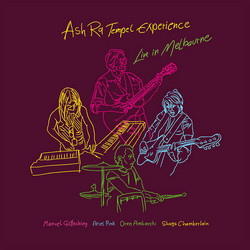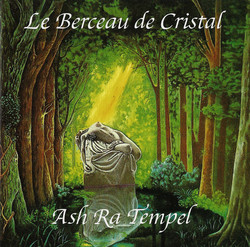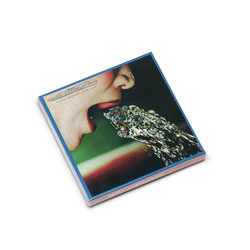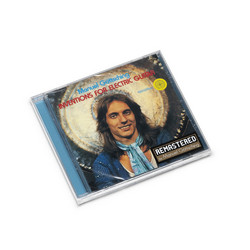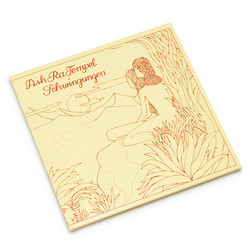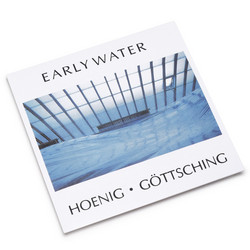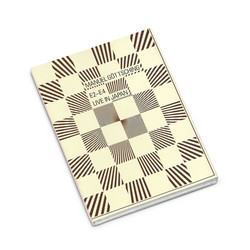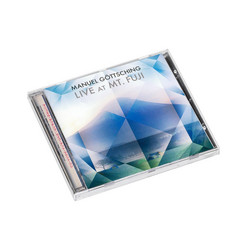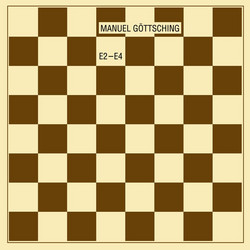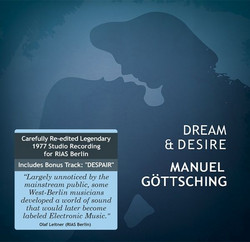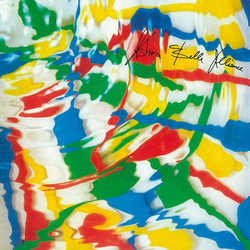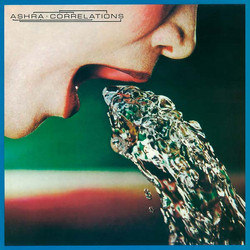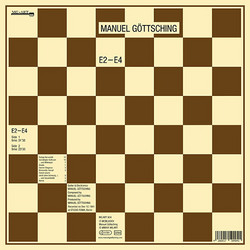Super tip! LP, 180G Black Vinyl, Sticker, 50th Anniversary RE-Edition, Re-Cut carefully overseen by Manuel Göttsching Quadro Fold Out Sleeve, exactly replicates complex/original OHR die-cut jacket, A2 Poster, 2x (German and English) A4 Inlay with Original Bio Sheet written by Manuel Göttsching (1970)
MG.ART announces the reissue of Ash Ra Tempel's eponymous debut album, originally recorded in March 1971 and released on OHR Records. This marks the first official vinyl pressing since 1975, representing a significant addition to the available catalog of early German experimental rock documentation. The album features the core trio of Manuel Göttsching (electric guitar, vocals, electronics), Klaus Schulze (drums, percussion, electronics), and Hartmut Enke (Gibson bass), with engineering by Conny Plank at Star Studio, Hamburg.
The work consists of two extended compositions: "Amboss" (19:40) and "Traummaschine" (25:24). These pieces document the group's exploration of what Göttsching termed "a combination of blues rock and delicate collages of electronic sound," representing an early synthesis of conventional rock instrumentation with electronic processing techniques. As documented in the original 1970 biographical material included with this reissue, the ensemble's compositional approach emphasized collective improvisation and real-time musical development rather than predetermined structural frameworks. The album emerged during a period of significant experimentation in German rock music, later categorized under the umbrella term "Krautrock." The extended improvisational format employed by Ash Ra Tempel paralleled developments in American experimental music while incorporating distinctly European approaches to electronic sound manipulation. The group's methodology, as Göttsching explained in contemporary documentation, involved "constant reaction within the band" to determine musical outcomes, with individual contributions absorbed and transformed through collective processing.
This 50th Anniversary edition has been prepared under Göttsching's direct supervision, utilizing original master recordings for optimal audio fidelity. The package includes: 140g transparent vinyl pressing, 350gsm quadro fold-out sleeve replicating the original OHR die-cut jacket design by Bernhard Bendig, A2 poster reproduction, dual-language A4 inlays featuring Göttsching's original 1970 biographical statement, and 50th Anniversary commemorative materials.
Julian Cope's Krautrocksampler identified the album as foundational to understanding German experimental rock development. AllMusic's retrospective analysis noted its "prescient" qualities in anticipating later developments in ambient and electronic music. The work's influence on subsequent experimental music production has been documented in various academic studies of 1970s German music scenes. This reissue serves as both historical document and accessible presentation of a work that has remained largely unavailable since its original pressing. The inclusion of Göttsching's original theoretical statement provides crucial context for understanding the album's compositional philosophy and its place within broader experimental music movements of the early 1970s. Released in memoriam of all musical contributors, this edition represents the fourth installment in MG.ART's ongoing archival documentation project.
The album documents a specific moment in experimental music history when traditional rock instrumentation was being systematically deconstructed and reconstituted through electronic processing. Its two compositions trace a progression from recognizable instrumental textures toward what Göttsching described as "electronic Nirvana," offering insight into early developments in ambient and electroacoustic music production.
"These freaks were fit. Superhuman. Superman." - Julian Cope
LP, 180G Black Vinyl, Sticker, 50th Anniversary RE-Edition, Re-Cut carefully overseen by Manuel Göttsching Quadro Fold Out Sleeve, exactly replicates complex/original OHR die-cut jacket, A2 Poster, 2x (German and English) A4 Inlay with Original Bio Sheet written by Manuel Göttsching (1970)
